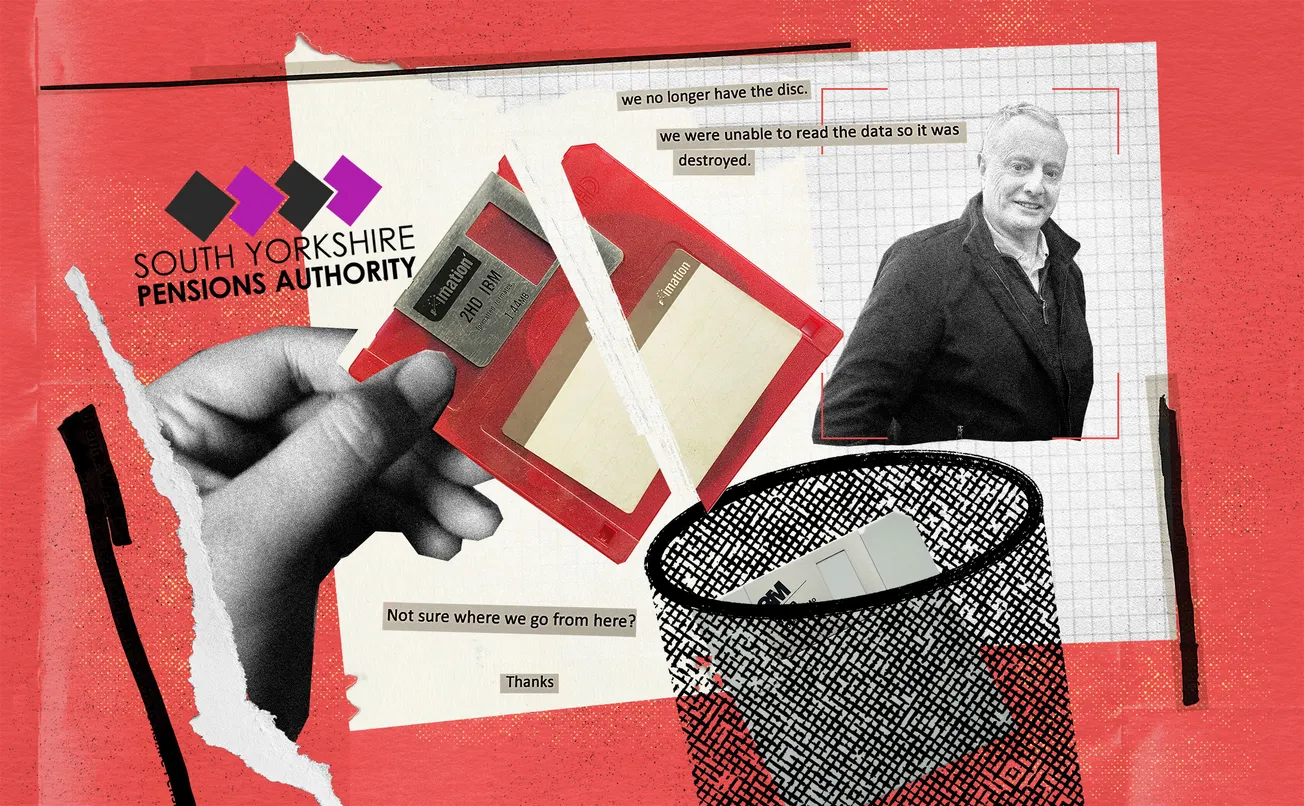You’ll be looking after children plucked from chaos. This is what we were told, more or less, when we qualified as local authority foster carers seven years ago.
We’re now on our eighth such child, which is next to nothing in the scheme of things. We meet fellow foster parents in their sixties or seventies who’ll proudly tell us they’ve cared for dozens over their lives — 54 in one case, I remember.
You see well publicised horror stories about the terrible harm inflicted on some children in Britain today. But the kids who come our way are plucked from more mundane chaos: backgrounds among drugs, petty crime, alcoholism, poverty, inability to cope, mental illness, all those modern day afflictions of the unseen families in the country we live in. So you sign up to do something to help.
We met our second child at the seaside last summer. We’d not seen her for a while, as she and her dad had moved away to a new town. When she came to us, she was seven months old, sickly and struggling. Physical problems from birth meant she couldn’t eat or drink, so was tube fed. Her limbs were so weak we had to make physio appointments to help her sit up.

But, as we say in Sheffield, she was all there. She’d study our faces, and when we took her out in her buggy, she’d carefully examine the detail of leaves or flowers. Over the months we looked after her, we taught her to crawl and navigated a feeding regime with health professionals, while meeting with her mum and dad as they tried to recover from illness. Her dad made it, and his daughter eventually returned to him, much stronger but with talking and walking some way away.
And now here she was by the sea, running and dancing. She was doing fine at school, making friends. Normal things. She ran over when we met her, chatting, delighted to see us, and then raced me up a nearby hill. Her dad was a little lost for words, but over the years has said thanks often enough.
Fostering must be hard work, but very rewarding, people say. Well, yes. ‘Rewarding’ doesn’t quite cover it when you see a child you remember from days of uncertainty and nights of vomit, running and laughing and starting her young life from what’s now a decent childhood.
But that reward no longer seems to be enough to bring in, and keep, foster carers. The struggle to manage the increasing demands of the job and make ends meet is by no means easy. Many say the old system of foster care is broken, based as it is on a twentieth century model of good hearted community members — mostly women — taking care of troubled children through an abundance of love and kindness.
Sheffield Council sent me their latest figures: over the last year, 45 foster carers left the council’s fostering service while only 11 were recruited. A quarter of Sheffield’s 433 children in foster care live in care provided by private companies, and with only 213 remaining foster parents in the city, it seems the huge bill paid by the city to those companies is only going to grow.
The government’s own review of children’s services, published in 2022, addressed the pervasive advance of profiteering in private fostering companies, and eye-wateringly lucrative children’s residential homes. “Fixing the broken care market” was how the report author Josh McAlister put one of his priorities calling for a £2.6bn investment over five years in a rejuvenated children’s care system. The critical review has been taken forward to form the backbone of the new “Stable Homes, Built on Love” government report and consultation.

In Sheffield, anger and resentment has been building for some time among local authority foster carers — the providers of those stable homes, built on love. The key grievance is about being valued, and that means being paid enough to live on as well as being listened to and respected. While household bills were rising last year, many foster carers learned that, although their payments and allowances had been frozen, other council workers had received two significant pay rises. A review of pay rates that was promised almost a year ago has just arrived, ready for review by the Education, Children and Families Policy Committee on Tuesday.
In a heated online meeting last spring, management heard foster carers describe how they were struggling to make ends meet as bills rocketed. Could the service urgently help, by increasing (already minimal) pay rates in line with inflation? How about measures being looked at by other authorities and national fostering representatives, like retention payments between child placements, or discounted or waived council tax (since the home is provided for the care of a placed foster child)?
These suggestions don’t appear to be on the agenda for Tuesday — although a huge cut in the allowance for new foster carers is. The proposal seems to be that new carers will receive a lump sum of £1,000 for their first year with a placement, instead of the current rate of between £125 and £185 a week, depending on the child’s age.

“Who in their right mind is going to take a job for virtually no pay?” asks Paul (not his real name). Ahead of Tuesday’s publication, I’ve arranged to meet half a dozen fellow local authority foster carers. Between them, they have close to a hundred years of working for Sheffield council. None feel comfortable with their names being published.
They tell me many colleagues are planning to give up the job once their current child’s placement is over. They feel lied to, not listened to and disposable, they say, and add from years of experience that they fear the service is on a downward spiral.
At present, foster carers receive an allowance towards the costs of looking after their children, along with a ‘skills payment’, which they’re expected to live on. Ann — a business owner herself in the past — worked out that on last year’s rates, foster carers were expected to live on a little over half the minimum wage, but only if they were assumed to be working a 39-hour week.
Everyone laughs semi-hysterically at this point. Tracey notes how she spends most nights holding the hand of her anxious two-year-old, before getting up at six to start the day with the child’s sisters.
And then there are the other, invisible, foster carers — the partner or family member of the primary carer, who still has to do the training, pass the health and DBS checks, attend courses and meetings, and who usually also plays a part during the day and night, but as a secondary carer gets no allowance. “They’re just freebies for the council,” says Jane.
(In order to make ends meet, I’m writing this piece for the Tribune in between the midnight and 4am feeds for our current three week old. He’s asleep now, but will need feeding soon. Despite being an official foster carer, as a secondary carer, I receive no wage at all. This weighs on your mind in the early hours).

“And we don’t get sick pay,” adds primary carer Helen. “We may work for Sheffield council, where their other staff can go off sick for six months. But we can’t. If we’re poorly, we have to get up and carry on.”
It’s about feeling valued and heard, says Jane. She says she feels grubby talking about money and pay rates in a vocation like fostering, but when you’re not getting enough to live on, it impacts everyone in the family, including the children you love and nurture on behalf of the city.
Sally Williams, the council’s director of Children and Families, oversees the fostering service. When we speak over video call, she seems as angry as everyone else about the more outrageously profit-based sections of the modern fostering market.
She explains how the council has a legal obligation to find stable homes for all children who come into care — and since there aren’t enough carers, many of our children have to go to (profit-based) independent fostering agencies (IFAs), or to residential care homes. IFAs cost significantly more than it would to assign a child to a local authority foster family, but cheaper than the astronomical costs of residential children’s home places: around £5,500 a week for a single child is not uncommon, says Sally.
The evidence (from the Stable Homes study and elsewhere) shows that family homes are by far the best place for most children in care, unless they have very particular physical or other needs. The council has half a dozen of its own residential homes with different specialisms, but the lack of foster carers means many young children who’d ideally live with a family end up in residential homes instead. This allows private companies to cream off vast profits because the councils have nowhere else to go.
All of which baffles Sheffield’s foster carers. “Instead of developing a sustainable model for local authorities, we’re paying so much money to private care companies,” says Ann.

Williams hints that the care model we might be heading for is based very much on the thinking behind the Stable Homes report. There’ll be a priority for placing a child with family, wider family or even with ‘connected’ families in the community when possible, with foster carers as the next choice. She mentions a new website and rebranding exercise, and an attempt to recruit by word of mouth. Children and young people need to feel safe and cared for, she says.
But when asked specific questions about pay rates, council tax subsidies and the fact that foster carers seem to be the only employees the council is prepared to pay a fraction of the minimum wage, she says she can’t respond as these are matters for the councillors at Tuesday’s committee.
I think she’s sincere when she tries to say how much she values foster carers. “They’re making a difference to kids who need it most,” she says. “It’d be lovely to say it’s about [whether] you’ve got a spare room and clean bed and a hot meal, but that’s not what fostering is. It’s the million other things you do every day that build up to that child being able to feel safe. That safety doesn’t come by accident; it’s really hard work.”
So is foster care a job, a profession or a vocation? Sally calls it a job, and agrees that foster carers are professionals. Jane says foster caring is all three. “We’re public servants. People know about nurses, and say they’re undervalued. But foster carers are the public servants that nobody can see.”

Sheffield, says the new council Community Parenting Strategy for looked after children, is a place where “children and young people are nurtured by carers and workers who are well-resourced, valued and supported.” At the meeting of carers, Jane quotes these words and laughs. “There’s part of me that really really hopes, in a naive sort of way, that that’s where we’re heading,” she says.
I wouldn’t want to deter anyone from a profession that allows you to steady and guide a new life to a better future. We learned in our training about how to overcome attachment issues, and how security and fun and love and care in the first months and years can — and probably will — reduce the risk of lifelong harm for someone born into childhood trauma. The children we cared for earlier are doing pretty well now that they’ve moved on.
I think about the happy girl at the seaside. The tiny babies growing up with their mums and dads and aunties and families after months of help and support. The little girl brought to us by a police officer and social worker after another late night of terrifying trauma, who was sparky as ever when we met her a few months ago to make toy magic wands together. And the new boy is growing and settling with us after a chaotic start to life.
Fostering gave our children a chance to flourish. I think about them all during these early morning hours, as the boy wakes and watches me in the darkness.
To sign up to David Bocking’s personal newsletter, enter your email below.
Comments
How to comment:
If you are already a member,
click here to sign in
and leave a comment.
If you aren't a member,
sign up here
to be able to leave a comment.
To add your photo, click here to create a profile on Gravatar.







